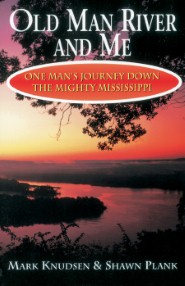Choosing to criticize Jack Kennedy not because it is easy, but because it is hard
This column was written and originally appeared in November 1993 on the 30th anniversary of the Kennedy assassination.
When I was growing up, John F. Kennedy was equal to greatness.
He was on the 50-cent piece and stamps, he had a space center and schools all over named in his honor. To those of us born after Kennedy’s death, those symbols indicated he was as great a president as Abraham Lincoln.
We learned a lot about Lincoln in school — about his pivotal role in the Civil War and his assassination. But we never quite got around to learning about Kennedy in history class. It seemed as if we always got to about World War II every year and had to rush through to get to Hiroshima and Nagasaki before summer vacation. I think our teachers were also reluctant to teach Kennedy as “history,” since to them he seemed like a current event. To them, his influence in American life was as present as Ronald Reagan’s is to me today.
But to us kids born in 1964 and after, Kennedy was as much a part of ancient history as Lincoln. And the legendary status of the pair was equally great.
In elementary school, however, I got a book called “Atlas of the Presidents,” through an offer on a beans-and-wieners can. After eating enough beans-and-wieners to forever alter my body chemistry, I sent in a thick bundle of can labels and got the book. Kennedy was so great, I thought, he must have been president for a long time. But the book said he was president just short of three years, only slightly longer than Millard Fillmore.
Still, Kennedy must have done great things in that short time to be so honored, I thought. But the book’s profile didn’t begin by mentioning any great accomplishments. Rather, it said he was, “Charming, youthful and handsome,” which are as good of qualifications for president as “clean, eats his vegetables and conjugates verbs properly.”
Most of what we learned about Kennedy was through our morbid curiosity for what went on that weekend in Dallas 30 years ago. We were captivated by the different theories of assassination and about the seemingly unsolved mystery. It was through those theories we finally began to learn about Kennedy as a human being, rather than a revered idol.
On the 30th anniversary of his death, I come away with a view of Kennedy as a person whose every move seemed calculated to show the Soviet Union how macho he was. History makes his acts of sometimes obstinate toughness seem narrow-minded today.
For example, the Cuban Missile Crisis should no longer be portrayed as a great Kennedy victory in his showdown with the Soviets, forcing them to remove missiles from Cuba. Rather, it should be seen as Kennedy’s unnecessary game of chicken to show the Soviets how tough he was — except the possible head-on collision would have resulted in nuclear war.
Kennedy only took action on civil rights after he saw how crackdowns on blacks in the South looked on Soviet TV — American police turning against its own citizens. He dreamed of going to the moon, only because the Soviets were threatening to get there first.
In fact, I think Kennedy’s reported trysts with mistresses not only showed what he thought about the place of women in society, they were calculated to show the KGB that capitalism would get you more chicks than Communism any day.
Granted, we’re living in a different world than 30 years ago. Hell, we’re living in a different world than five years ago. In this post-Cold War world, Kennedy’s actions seem less like well-reasoned foreign policy and more like an Evel Knievel-style stunt.
In the 1988 vice presidential debates between Dan Quayle and Lloyd Bentsen, Quayle tried to battle charges of inexperience by pointing out that he had spent as much time in Congress as Kennedy before he was elected president.
Everybody laughed and Bentsen attacked him with that well-known line.
But maybe Quayle had a point — both did serve about the same amount of time, both were sons of rich, privileged parents, both were motivated by a fear of the Soviet Union and both had reasonably good hair.
Quayle’s mistake came in that he dared to compare himself to a fallen, idealized figure. But maybe Quayle was just taking the first steps to realizing Kennedy was just a guy — a reasonably good president, perhaps, but not in a league with Lincoln at all.
You see, I knew Abraham Lincoln. I admire Abraham Lincoln. And President Kennedy, you’re no Abraham Lincoln.




 Friday, December 31, 1999 at 7:01 PM
Friday, December 31, 1999 at 7:01 PM
Reader Comments